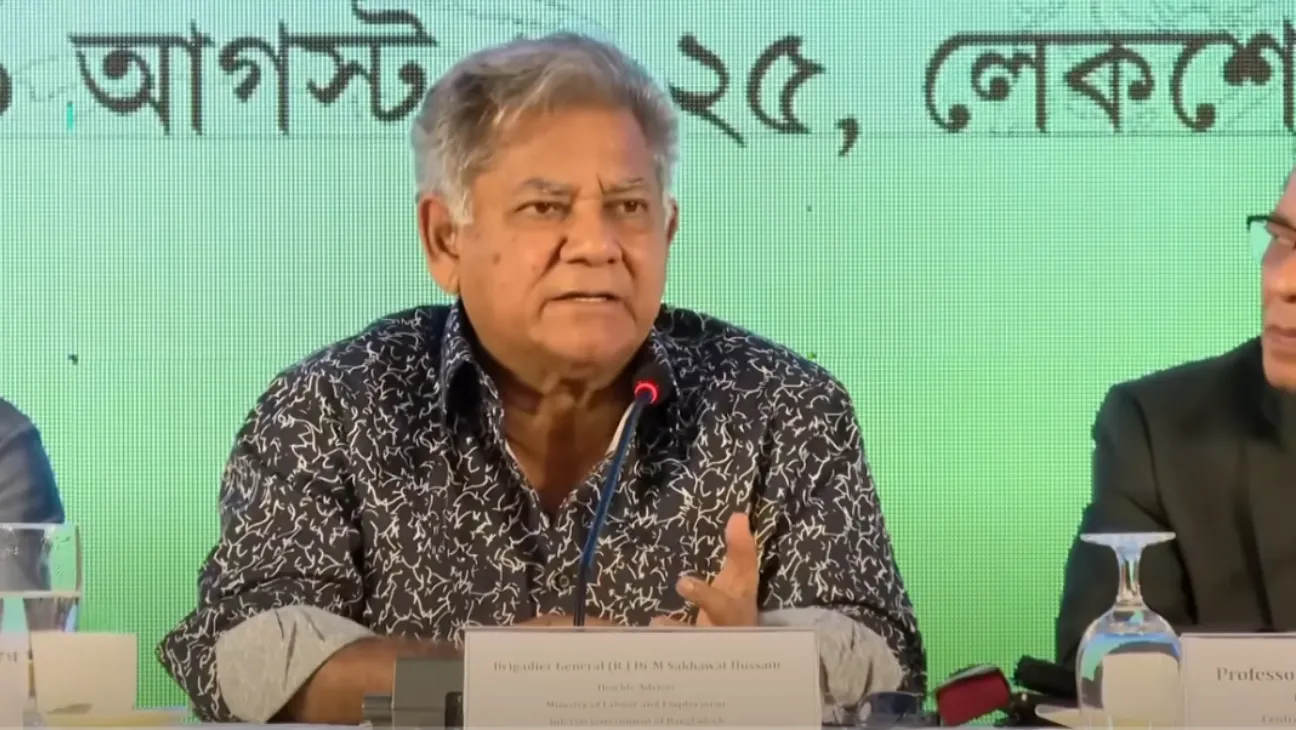Labour and Employment Adviser Brigadier General (retd) Dr M Sakhawat Hossain has said that despite its name, the Labour and Employment Ministry has done little to address job creation.
Speaking at a seminar titled 365 Days of the Interim Government, organized by the Centre for Policy Dialogue (CPD), he said the term “employment” exists in the ministry’s title but not in its work.
“When I tried to focus on employment generation after taking office, I was confronted with the harsh reality of bureaucratic complications,” Sakhawat told the audience. “Any attempt to make the ministry’s employment activities more practical was blocked by red tape.”
He described the bureaucracy as slow and resistant. “To get anything done, you have to send someone along with a file to make sure it moves. At this pace, it’s impossible to accomplish anything in a year.”
Sakhawat also reflected on his shifting portfolio, saying the ministry was changed four times during his tenure, leaving many initiatives incomplete.
During his time at the Ministry of Home Affairs after the July mass uprising, he said much of his work involved persuading police officers to return to duty. “The police force still lacks capability, and no structural reforms have been made.”
In the labour sector, he cited the collapse of large employers as a major setback. He mentioned Beximco’s closure, which displaced 38,000 workers, and pointed to cases of runaway business owners.
“One company took Tk48,000 crore in loans from 16 banks — Tk24,000 crore from Janata Bank alone — and disappeared. No other country has seen such a precedent,” he said.
Addressing international concerns, Sakhawat said an International Labour Organization (ILO) visit over workers’ rights posed a real risk to Bangladesh’s export market. “A single wrong move could have collapsed the entire market. There was no room for arrogance.”
He also raised concerns about tea garden workers. “There are no toilets for women workers, many suffer from cervical cancer, and there isn’t a single tube well for drinking water in large tea estates,” he said.
Sakhawat argued that infrastructure projects alone do not reflect true development. “Having metro rails and elevated expressways doesn’t automatically mean the country is progressing. Real development happens when benefits reach all sections of society.”
On whether the interim government failed over the past year, he said responsibility does not rest solely with the administration. “Many who were expected to cooperate chose to remain inactive. Yet, our doors were open to all.”
He also pushed back on the idea that his government can’t take criticism, arguing that things are completely different now. He pointed to a time when labor leaders were silenced through abductions, killings, or jail time. But his government, he said, changed that by releasing 41 of those leaders. The proof, he argued, is that “people are freely speaking” today, and his government is willing to hear them out.









